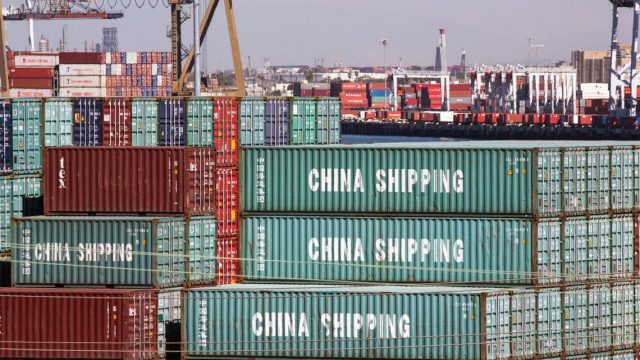Trade Cannot Be the Only Lens Through Which We See China

As I write this I am attending the 2019 Policy Summit put on by the Greater North Dakota Chamber of Commerce.
The first panel this morning was about trade and tariffs, and while the discussion was illuminating, I can’t help but feel that an important part of the debate was missing from it.
The panel was fairly stark in their opposition to President Donald Trump’s trade war with China. “I just know that trade wars have never worked,” Bob Sinner, president of Identity Ag Processing and a member of the U.S. Soybean Export Council Advisory Board, told the audience.
“There is a better tool we have available to us…it’s called free trade agreements,” Thomas Shorma of WCCO Belting in Wahpteon said.
These are business people who engage in international trade. They have been heavily impacted by the trade war. It’s understandable that they want the war resolved and favorable trade conditions restored.
I want that too. I think most of us do. But there’s a dimension to the fight with China that wasn’t mentioned during the panel discussion. In fact, it doesn’t seem to get mentioned very often when we talk about it. Not even the Trump administration, which could probably benefit from deploying the argument, talks about it much.
China is an authoritarian dictatorship and generally an enemy to America’s positions on issues like democracy and human rights. In fact, one thing that makes China so resilient to trade pressure is that they can simply order their citizens, and business community, to suffer the economic pain.
It can seem strange to be talking about falling soybean prices and the rising price of importing materials from China while millions in Hong Kong fight Chinese authoritarianism.
Americans, including this one, have long promoted trade with China both because it’s lucrative but also because we’ve assumed that it would serve as a moderating influence on China’s government.
What if we were wrong? What if, instead of knocking the rough edges of Chinese authoritarianism, our trade with them has fueled a monster?
Allow me to quote something I wrote about this back in May:
China has used international trade as an entré to wholesale theft of intellectual property which they, in turn, use to not only harm us economically but enhance their ability to spy and even make war on us.
We live in an era where consumer goods connected to China – products like cell phones or tablets which may be in your home right now – cannot be trusted.
“The Chinese intelligence services strategically use every tool at their disposal — including state-owned businesses, students, researchers, and ostensibly private companies — to systematically steal information and intellectual property,” FBI director Christopher Wray said recently.
Nor has trade tamped down China’s propensity to abuse its own citizens. The Communist regime has perhaps as many as two million people living in concentration camps. The country has “dramatically stepped up repression and systematic abuses against the 13 million Turkic Muslims, including Uyghurs and ethnic Kazakhs, in China’s northwestern Xinjiang region,” Human Rights Watch reports.
In 2018 Xi Jingping, who has been General Secretary of the Chinese Communist Party since 2012 and President of the country since 2013, indicated his desire to hold power indefinitely by abolishing term limits for the presidency.
Add into that list the grim-but-hopeful spectacle of the Hong Kong protests, and perhaps you can understand what I’m talking about.
The trade war with China is economically painful for millions and millions of Americans, but what if it’s bigger than soybeans and cheap consumer goods?
The hopeful news from the panel discussion is there is some closed-door-open-window stuff going on. The panelists discussed the possibility of selling more soybeans into India, for instance. The Brexit situation in the U.K., as chaotic as it seems now, is also something American exporters are watching. “We have other opportunities,” Sinner told the audience.
He also said he doesn’t believe the Chinese market is coming back.
Maybe we shouldn’t want to. At least not with the present Chinese regime.




